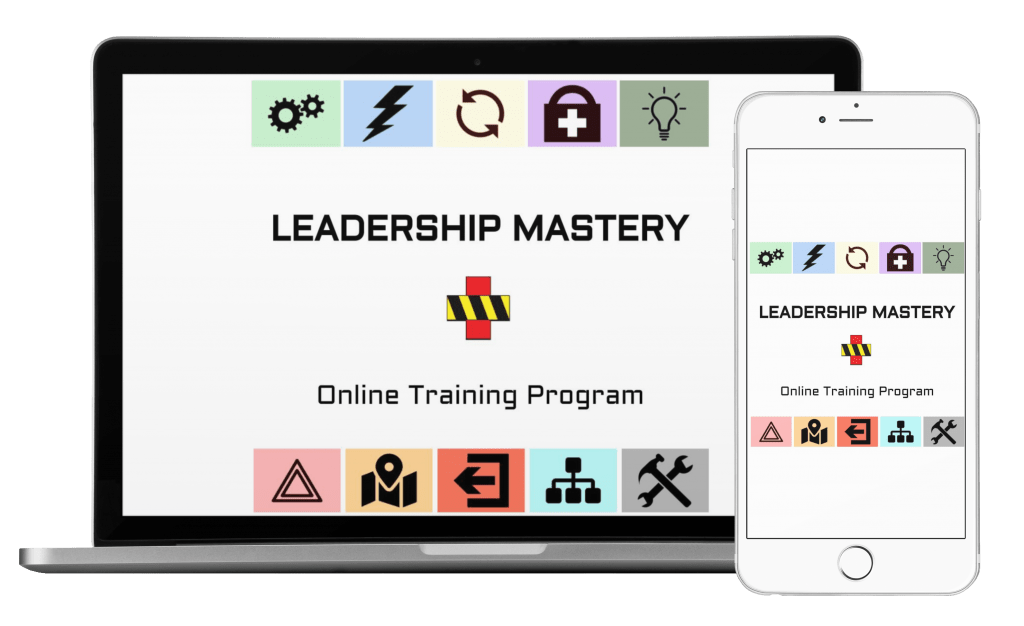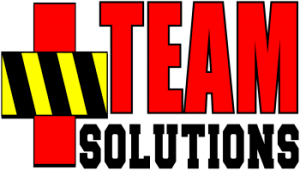Leadership Training
The essence of what we do here: helping leaders succeed before, during and after a planned or unplanned event.
- We've seen the leaders hiding in their office, crumbling under the weight of indecision, withering confidence and the lack of an executable plan.
- And we've seen the leaders that are out in front, confidently guiding themselves and others past the crisis to a acceptable outcome.
We all obviously want to be the latter example, which is why you're here, yes?
The world needs more leaders too, which is why I have created a variety of options to help improve your leadership knowledge and skill.
Starting with:
Leadership Mastery Online Program
Leadership Mastery is an interactive online program delivering knowledge, tools, and insights so that emerging leaders can confidently excel before, during and after any challenge.

Crisis Quick Start Checklist
In a hurry? Grab this free 1-page Crisis Quickstart Worksheet for starting, managing and ending a crisis.
Training Outline
As more and more leadership challenges dominate the news and boardrooms, organizations in both the private and public sectors are seeking a better way to prepare for and manage their way through a crisis or major project ... they just don't know where to start.
Before initiating a training program, be sure the training outcomes align with the priorities and objectives you've set and vice versa.
Some leader, somewhere at some time must decide that they want their organization to achieve some kind of result. However clumsy it may be initially, that high-level goal/desire forms the basis of the organization's priorities by painting a picture of what they want in the future.
This may be spelled out in an existing albeit dust-covered mission statement, policy manual, Emergency Operations Plan or it may be uttered right after the power gets knocked out by surprise. It may sound like this:
"I don't want us to look poorly-prepared during a crisis (or project, or initiative, etc.)" ... which usually evolves into "I want us to be better prepared for a crisis (or project, or initiative, etc.)" (which becomes the basis of your priority)
The goal to be better prepared should also be accompanied by an explanation of "why." Without a good answer to that, the priority has little chance of becoming real. Nor should it.
So, why do we want to be better prepared to manage a crisis?
- "Because we get to print up and wear t-shirts that say 'crisis manager'" is a poor reason to initiate a training program.
- "Because we have a responsibility to our staff, their families and our customers and stakeholders to survive and thrive should a crisis befall us" is a great reason to initiate a training program.
A follow-up question, in case the solution isn't obvious, is to determine "how" the picture of the future (the priority) is realized. In our example, a reasonable answer to "how" to improve our preparedness to manage and survive a crisis is: training
Arriving at this priority with the backing of "why" and "how," the next step is to define specific outcomes that will progress us towards our goal.
Those more specific these outcomes are the easier it will be to measure our success.
- "Provide in-person training for 80 staff members on the basics of crisis management consistent with NIMS (the National Incident Management System) before June 1st" is an objective that is easy to understand and execute.
- The popular acronym for a well-written objective is S.M.A.R.T.: Specific, Measurable, Achievable, Relevant and Time-Bound.
After the outcomes (objectives) have been defined, then more specific strategies (how the objectives are met) and tactics (how the strategies will be executed) bring the whole initiative to life.
Let's summarize.
The high-level steps to achieving your crisis training goals:
- Establish the Priority - overarching statement that also incorporates WHY the goal is a priority.
- Create S.M.A.R.T. Objectives - define WHAT the needed outcomes are to achieve the goal
- Develop Strategies - outlines HOW the objectives will be met
- Identify Tactics - HOW specifically the strategies will be executed
Whether you have your tactics already identified or you're still at the goal-setting stage, I'm prepared to help you succeed at the next level.
Read on about my training principles below or contact me HERE.
My Training Principles
I've had the honor of working with (so far) ...
- Very large, multi-national organizations as well as very small businesses
- Local, state and federal public sector agencies (law, fire, emergency mgmt, military, etc.) and private sector enterprises (schools, higher ed, pharmaceutical, transit, healthcare, etc.)
- Brand new volunteers, experienced crisis responders, senior elected officials and members of the c-suite
- And each and every one of them has taught me how to be a better instructor, coach and mentor.
Learn more about me here. (opens in new tab)
Those extensive hours and numbers of students have provided me insight into how I can be the most effective in helping people improve. Below are a few of my training principles:
- Student outcomes rule. Maximizing the opportunity for course participants to leave satisfied is central to my approach. Not just in word but in action. Everything else about my engagement with a client centers around that obligation and is extended to any other instructor or facilitator I bring in to serve.
- No "gotchas." Really. Everybody was new to a topic once and nobody likes to be called out or embarrassed for not knowing something. Every course participant has value to bring and they will all be respected for their commitment to improve.
- No reading off of a PowerPoint slide. Except in rare cases, I rely on participant engagement, white boards and key, recurring themes to achieve the training outcomes instead of a narrated slide show. Students agree, too.
- Competence over credential. Course participants are better leaders when they have confidence, courage and clarity at the end of a course versus a cookie-cutter course with a credential attached. I understand the business argument for a credential, however, I find that I can usually make better use of our time together creating something more customized to the specific audience. Speaking of ...
- Customized over one-size-fits-all. Not every organization is starting at the same point so improvement requires individualization. While I may rely on some universal material, I only draw from those topics that create the best fit with the participants and their organizational need.
- Coaching and mentoring trumps lecturing. Just say no to podiums and lecterns. Adults that want to learn something new usually require a careful blend of instruction, guidance, and reinforcement, not a lecture.
4xWin
Win-Win-Win-Win. Everybody can win when we try.
When I train your organization, here's my winning formula:
- Your organization's leadership wins - targeted, effective education for their organization that greatly enhances their overall resilience and competitive position.
- Your managers and supervisors win - their staff become engaged with the crisis plan and they establish themselves as a valuable part of the solution instead of a perilous part of the problem.
- Your participants win - they walk away with the right amount of useful knowledge and the confidence to use it when needed.
- I win - I get to start an alliance with a like-minded organization that's as committed to improvement as I am.
Leadership Coaching
Sometimes you may need more 1-on-1 time to set customized goals, work through the subtleties of your situation or interact on a more personal level.
If that describes your situation, contact me about private coaching or learn more at the link below. In any case, I'm here to help where I can provide you the most value.
Click HERE for more information about Leadership Coaching. (opens in a new tab)

